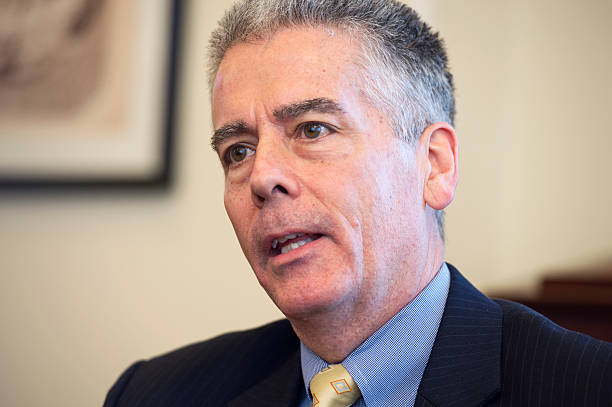On September 11, 2001, Frank J. Larkin was working at the Secret Service’s New York City headquarters in the World Trade Center. “[I was] dodging, unfortunately, folks who were jumping to their deaths, you know, witnessing that, which is something you just never forget,” he recalls. A Navy SEAL, with nearly a decade in combat, Larkin has also worked for the Maryland State Police, in association with the Department of Defense, and as a Secret Agent for the US Secret Service. Then, on January 6, 2015, he was nominated and appointed by Mitch McConnell to the position of Senate Sergeant-at-Arms, “its chief law enforcement officer, protocol officer, and executive officer.”
His son, Ryan F. Larkin, also felt this need to serve, following in his father’s footsteps and enlisting in the Navy in 2006. Once enrolled, Ryan was deployed twice to Iraq, twice to Afghanistan and completed missions in Lebanon and Honduras. Considered “a renaissance man,” he received many awards. In March 2016, Ryan received an Honorable Discharge from the Navy. While he stayed active post-deployment by, for example, attending college, his discharge was assumedly given at least partially because of a recognized brain injury. On April 23, 2017, Ryan Larkin took his own life.
As someone without children, I cannot imagine what the loss of a child feels like. However, I have always heard that it is the worst thing that can ever happen to a parent. Specifically related to Sergeant-at-Arms Larkin, it upended his life, including his career. In March, he sent notice of retirement. “Now I feel this obligation to help others…. These men and women volunteered to go in harm’s way to protect this nation, and we promised that we’d take care of them. But we’re not living up to that promise.” Upon leaving his job, he intends to spend his time advocating for projects related to traumatic brain injury research, particularly research related to military blast exposure, like that experienced by his son.
A VA study, published in September 2017, reported that the suicide rate for veterans is about 20 percent higher than the rate for non-veterans. (That statistic is debatable. Some say its lower and others have said its as high as 22 percent.) “These findings are deeply concerning,” said VA Secretary Dr. David J. Shulkin at that time. “What’s more, they report that veterans’ suicides account for 18% of the suicide deaths in the country, while they only make up 8.5% of the adult population.” The National Center for PTSD, part of the VA, knows and notes the relationship between PTSD and suicide. On January 10, 2017, Rep. Peter King (NY) introduced H.R. 411, the Veteran Suicide Prevention Act. This bill was referred to the Subcommittee of Health on February 3, 2017 and it seems nothing has been done with it since that time.
[As of April 2018, Larkin is still in office and he has stated that he will not retire until his replacement is found.]

